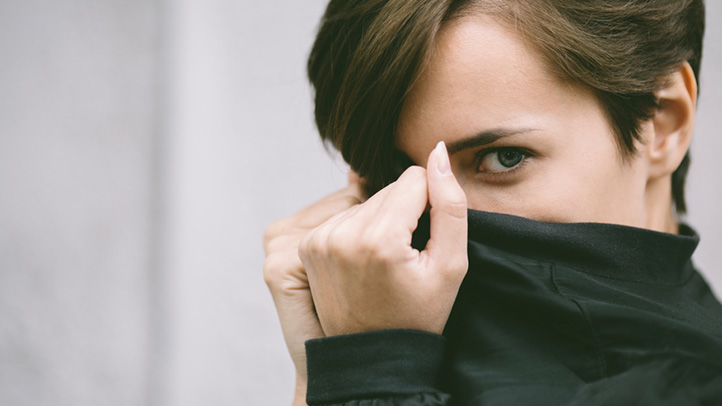Understanding all about cystic acne
All of us had a pimple or two when we were teenagers right? Yes, almost all teens get acne. But do you know if you have large, red and painful breakouts deep in your skin, you may be experiencing something called cystic acne, a skin condition in which the pores in the skin gets blocked usually with dead skin. There may be an occurrence of infection and inflammation, if bacteria get trapped inside the pore. When the cyst bursts, it results in spread of infection causing more breakouts Cystic acne is more common during the teenage years or early 20s. But it can occur to any one as young as 8 years or as old as 50 years. It is more likely to affect your face, chest, back, upper arms and shoulders.
Here is what causes cystic acne
The exact cause of cystic acne is not known but it is believed that changes in the hormones called androgens play a crucial role. During puberty, the levels of androgens hormones increase drastically resulting in increased production of sebum and thereby greater proliferation of skin cells.
Other factors that may lead to cystic acne include:
Hormonal changes associated with puberty, the menstrual cycle, pregnancy, birth control, hormone therapy and stress.
Using greasy cosmetics, cleanser, lotions or any other skin care product
High levels of humidity and sweating may also lead to cystic acne.
Certain drugs and chemicals, which may cause or worsen the existing acne.
Cystic acne symptoms you must know
Produces cysts and nodules
inflammatory papules and pustules
Visible scarring
Regardless of the form of acne you experience it’s going to affect your self-esteem and mood, but the risk of psychological distress is higher in someone who is experiencing cystic acne because it typically has a major impact on the appearance of the face.
Treatments of cystic acne
There are plenty of over-the-counter medicines that work effectively on the milder acne but they seem to help much in cystic acne. In case of cystic acne, your dermatologist will likely recommend one or more of the following:
Oral antibiotics to control bacteria and lower inflammation. However, sometimes your acne may not respond to antibiotics, though.
Birth-control pills may help some women by regulating their hormones.
Prescription-strength creams, lotions, or gels with retinoid, a form of vitamin A, to unplug the pores and thereby letting antibiotics do their job.
Home remedies to cure cystic acne
Instead of going for over the counter medicines, you can try these effective home remedies for acne treatment.
Baking soda for cystic acne
Did you know baking soda is packed with antiseptic and anti inflammatory properties that can cure cystic acne? Yes, that’s true, besides it not only balances pH level but also makes your skin healthy by absorbing excess oil and exfoliating the skin.
How to use it
Take 1-2 tablespoons of baking soda and mix them with water to form a thin paste. Now apply this paste on the affected area. Leave it for 10-15 minutes and then rinse it off with lukewarm water. Repeat this remedy for 1-2 times daily for best results.
Apple cider vinegar for cystic acne
Apple cider vinegar is quite popular due to its numerous health benefits. Besides, it’s good for your skin as well as it stabilizes the natural pH levels of the skin and prevents future outbreaks from occurring.
How to use it
Take a cotton ball or Q-tip and apply apple cider vinegar on the affected area before going to sleep. Leave overnight and rinse with water the next morning. Repeat regularly until results are visible.



 Contact Us
Contact Us







 Hospitals
Hospitals
 Doctors
Doctors
 Diagnostic
Diagnostic
 Pharmacy
Pharmacy
 Health Tips
Health Tips
 Blog
Blog

























Comments